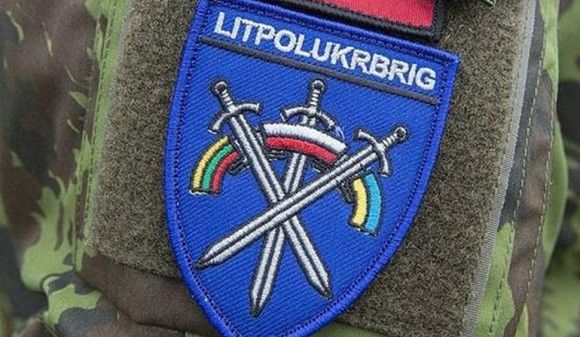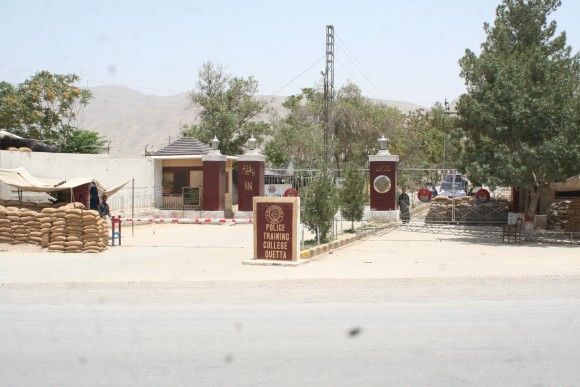Industry
Warmate: Polish Loitering Munition. “Two Export Agreements Have Been Already Signed”
Warmate is a small-sized attack UAV, manufactured and showcased by the WB Electronics company. 20% of the total weight of the airframe is taken by the warhead. The UAV system in question is capable of searching for and destroying a variety of targets. By showcasing the system within the area of the Toruń military training ground, the manufacturer is trying to gain the Polish Army’s attention, so that it acquires the said UAV. Nonetheless, WB Electronics has received export orders pertaining to the systems from two foreign buyers. Several more countries are also interested in potential procurement.
Artillery and Armament Training Centre range in the Toruń area was the location, where demonstration of a new UAV system was conducted by the WB Electronics company. Here, we mean the Warmate UAV which is the first type of loitering munition manufactured in Europe. The design belongs to the suicide drones category – UAV systems which scan the battlefield flying over it, detect and identify the targets, and then a decision is made to destroy them, with the use of a warhead carried on-board. The UAV is destroyed as a result of the commenced attack. This type of systems makes it possible to conduct precise identification and strikes against a variety of threats, with ongoing control of the situation assured. The operator may resign from commencing the attack, change the target or transfer the reconnaissance data.
The UAV in question weighs 5 kilograms, its wingspan is 1.4 meters, and it is 1.1 meters long. At distances of up to 10 kilometres, the system has a flight endurance of up to 30 minutes. It may also be fitted with three types of payload, two warheads and a module which is used solely for reconnaissance or training purposes, which contains no ordnance.
READ MORE: WB Electronics UAV Systems Offering Protection For Railway And Power Transmission Lines
Warmate may use a 1 kg warhead of two types: high-explosive/fragmentation GO-1 warhead, or HEAT GK-1 warhead. The HEAT warhead makes it possible to penetrate up to 240 millimetres of armour in case of a direct hit. This enables the user to apply the UAV in question, in order to act against numerous armoured vehicles present within the battlefield, especially in cases when the top section of the armour is hit. The fragmentation warhead, on the other hand, which is a more typical payload for this system, weighs 1 kilogram, whereas the explosive material constitutes 300 grams of its weight, with effective radius of explosion of 10 meters.
The UAV is controlled via a remote panel with a directional antenna. The airframe is launched into the air with the use of a pneumatic launch system. The package is contained in two backpacks, weighing several kilograms. The first backpack houses two UAVs and three warheads, while the second one contains take-off and control devices. Warmate may also be vehicle-mounted. In this case, take-off is possible to be realized in ca. 3 minutes. Warmates may also be carried by other aircraft. They may be used as the armament of the Manta UAV. Manta system is offered by the WB Electronics company, within the “Orlik” UAV procurement programme.
During the presentation which took place at the Artillery and Armament Training Centre in Toruń, the system was demonstrated to the representatives of the Special Forces, Land Forces, Border Guard, Polish Ministry of Defence and to the journalists. Warmate, despite the fact that it is a single use UAV, may be recovered, should it not be utilized, and after a relevant inspection, it may be used again. This also concerns the warhead containing two mechanical safeguards triggered before the take-off, along with an electronic system initiating the explosive directly prior to commencing the strike.
At the guidance stage and during the reconnaissance activities, the operator uses an optical system contained in the warhead, allowing him to control the flight until the very last seconds. The attack may be aborted, should the target be defined as a civilian structure, or as a friendly unit/vehicle. In the future, Warmate UAV is going to be further developed, both when it comes to the airframe, as well as within the scope of the applied guidance system.
The changes developed for the UAV, such as the airframe created out of composites, are to further decrease the cost and initiate the production. At the moment, WB Electronics concluded two export agreement. The company also received several requests for information regarding the project, as we were informed by Wojciech Komorniczak, Research and New Technologies Development Director. Komorniczak stresses the fact that Warmate is significantly cheaper than other similar armament, including guided missiles.
Moreover, further development is planned within the scope of control and guidance systems for the Warmate UAV. In the upcoming period, an autotracker is going to be applied, allowing the UAV to automatically track the acquired moving targets. It is also planned that the system is going to be compatible with laser guidance methods. Moreover, it is assumed that Warmate will cooperate with the Topaz system and with the FlyEye UAV. One of the foreign customers decided to equip the Polish loitering munitions with thermal vision devices, replacing the visible light spectrum cameras, for the purpose of using the system during the night operations.
WB Electronics has acquired two clients who procured the Warmate systems, however this group does not include the Polish Ministry of Defence. As we were informed by Wojciech Komorniczak, the clients include two non-European countries which, at the moment, may be considered to be flashpoints on the map. One of the customers decided to install a control system, along with 25 airframes, on an all-terrain truck, while the second one decided to integrate the Warmate system with a 4x4 platform, while several more, potential clients are interested in purchasing the UAV. In July and August the company has planned a number of field demonstrations of warhead use for the foreign buyers. The question whether the Polish Ministry of Defence and the Polish Army is interested in this system still remains open.



